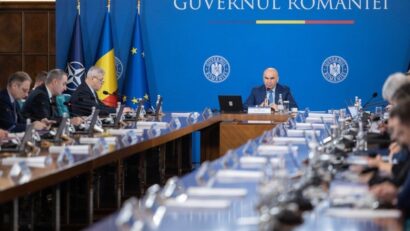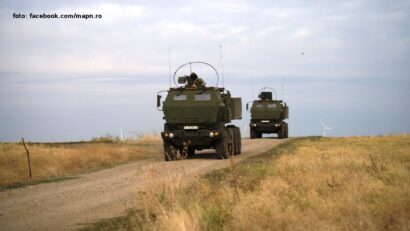A New Assessment Mission in Bucharest
A joint mission of the International Monetary Fund, the European Commission and the World Bank is currently in Bucharest to make a new assessment, the fifth, of the agreement concluded with Romania in the spring of 2011.

Eugen Cojocariu, 26.04.2012, 14:58
A joint mission of the International Monetary Fund, the European Commission and the World Bank is currently in Bucharest to make a new assessment, the fifth, of the agreement concluded with Romania in the spring of 2011. That is the last visit to Bucharest by the incumbent chief of the IMF delegation to Romania, Jeffrey Franks, who will hand over the position to Dutch Erik De Vrijer, who is also accompanying the current mission in Bucharest.
The IMF has made available to Romania some 2 billion Euros so far, after the Managing Board disbursed another payment, worth 505 million Euros following the assessment mission in early February. The current agreement between Bucharest and the IMF is a precautionary one and is worth 3.6 billion Euros. It accounts for about 300% of the quota Romania has at the IMF. The precautionary accord is accompanied by a similar agreement, worth 1.4 billion Euros signed with the European Commission and a credit line granted by the World Bank, worth 400 million Euros.
Some of the commitments made by the Romanian authorities, whose compliance has been only partially observed or even postponed, are related to privatizations, the promotion of managers from the private sector to state-owned companies and the budget deficit. Another interesting issue on the agenda of the talks refers to the authorities’ intention to bring salaries of public sector employees back to the level prior to July 2010 when they were slashed by 25%, as an austerity measure. The current context is a difficult one because of the elections to be held this year, coupled with worsening economic prospects.
It remains to be seen to what extent the Romanian authorities will manage to prove to the IMF officials that such a measure is sustainable. The IMF experts estimate that this year Romania will register an economic growth rate of 1.5% of the GDP, below initial estimates, because of the anticipated recession in the Euro zone and the downturn on international markets. Another focal point on the agenda of the economic and financial mission is the commitment made by the Romanian government to increase by 5% electricity prices by late June, for both industrial and private consumers. As regards the price of natural gas, the talks are focused on a phased out timetable, spanning several years, until the prices are liberalized.
Under the agreement signed with the IMF, Romania should restructure the sector of state-owned companies and to carry out a comprehensive reform of the healthcare system. Early this month, Economy Minister, Lucian Bode, said the government wanted to discuss again with the IMF the list of state-owned companies which will be privatized or traded on the stock exchange. The list includes Oltchim Ramnicu Valcea, Cupru Min Abrud, Transgaz, Romgaz, Nuclearelectrica and Hidroelectrica.






























